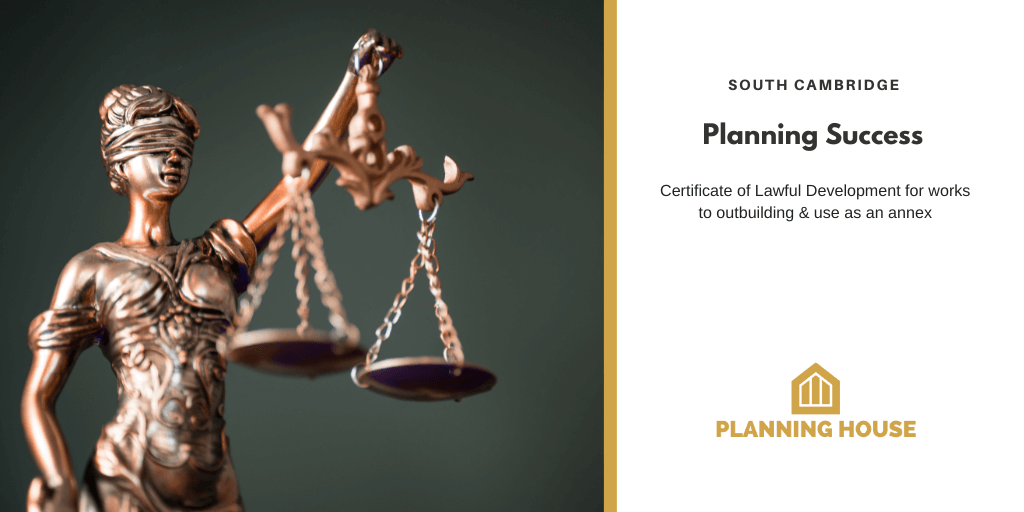We’re thrilled to have secured a certificate of lawful development in Cambridge for existing use or development (CLEUD) for works which were carried out a number of years ago under permitted development rights. The client is in the process of selling the property and the lawfulness of works carried out to an existing detached garage and its use as ancillary accommodation in conjunction with the main house was questioned.
An application made under S191 of the Town and Country Planning Act 1990 for a Certificate of Lawfulness for the existing converted garage to living space.
The applicant is responsible for providing sufficient information to support an application. A local planning authority is entitled to canvass evidence if it so wishes before determining an application. In the case of applications for existing use, if a local planning authority has no evidence itself, nor any from others, to contradict or otherwise make the applicant’s version of events less than probable, there is no good reason to refuse the application, provided the applicant’s evidence alone is sufficiently precise and unambiguous to justify the grant of a certificate on the balance of probability.
All provisions of Class A of the Town and Country Planning (General Permitted Development) (England) Order 2015 (as amended) were satisfied by this element of the scheme.
It is understood that within the Town and Country Planning act 1990, there are circumstances where existing “incidental” outbuildings within residential curtilage such as the garage can be converted into “ancillary” living accommodation as this is not considered a “material change of use”.
Sufficient evidence to satisfy the Council that the proposed living accommodation was functionally linked to the main dwelling and would not be used as a separate planning unit. Therefore, this is not considered to be a material change of use from the garage to residential annex, and therefore planning permission is not required for this change.
Many Council’s and some private planners make the mistake that the change of an incidental building to ancillary accommodation requires planning permission. Thankfully Planning House demonstrated through case law that in this instance no material change of use had occurred.
Related Content
More information for you is available in our series of eBooks and Practical Guides which cover everything from the very basics of town planning to application processes and what developers need to consider. Our FREE Practical Guide covering the basics of Certificate of Lawfulness is available if you find yourself in a similar scenario.
Our Enforcement eBook has further information on potential consequences of unauthorised development and our series of eBooks have more information on Town Planning…The Basics topics.
If you’re not sure if you need help from a Town Planner take a look at blog on When to Hire a Town Planner our download a Guide on How to Choose a Town Planner.


